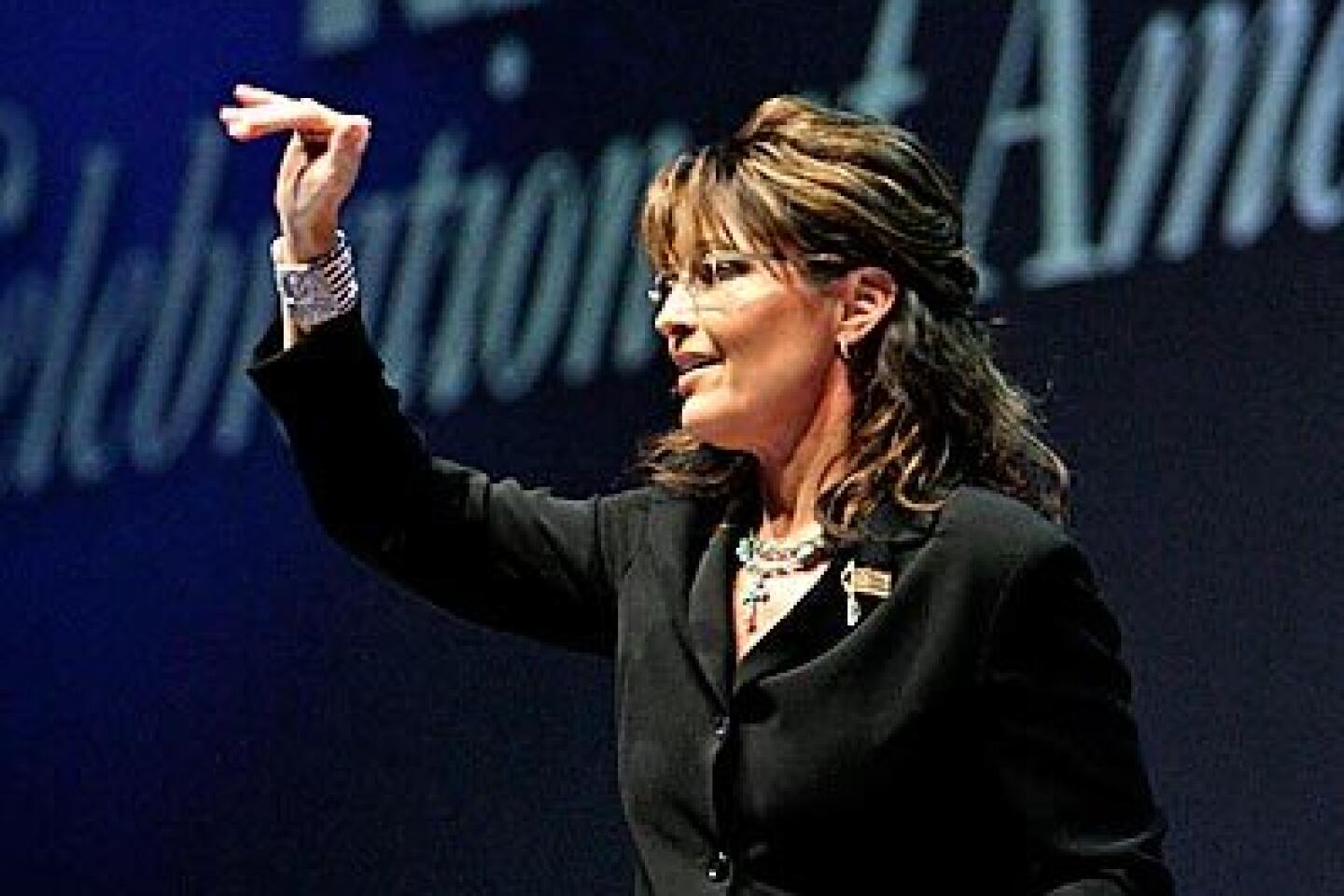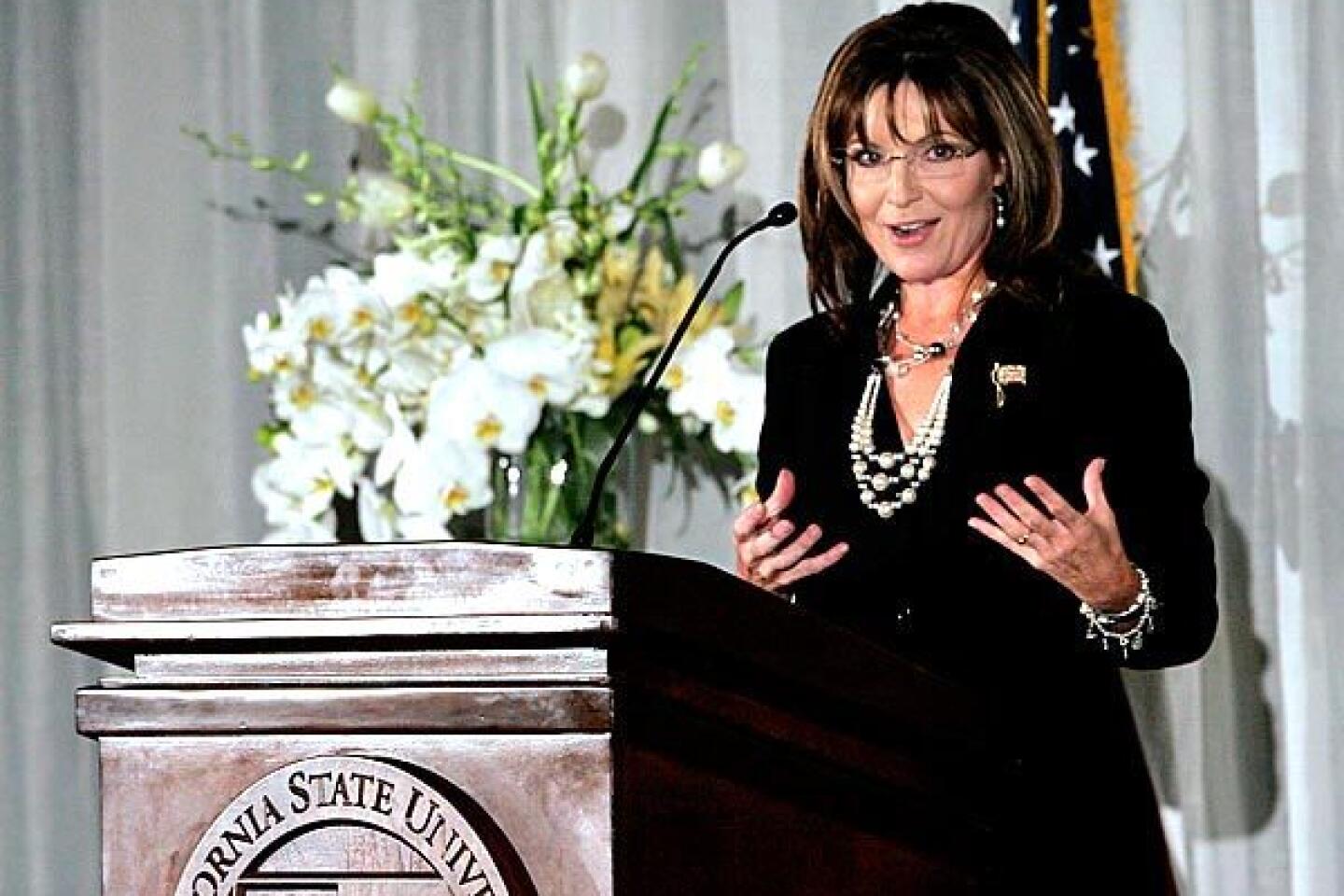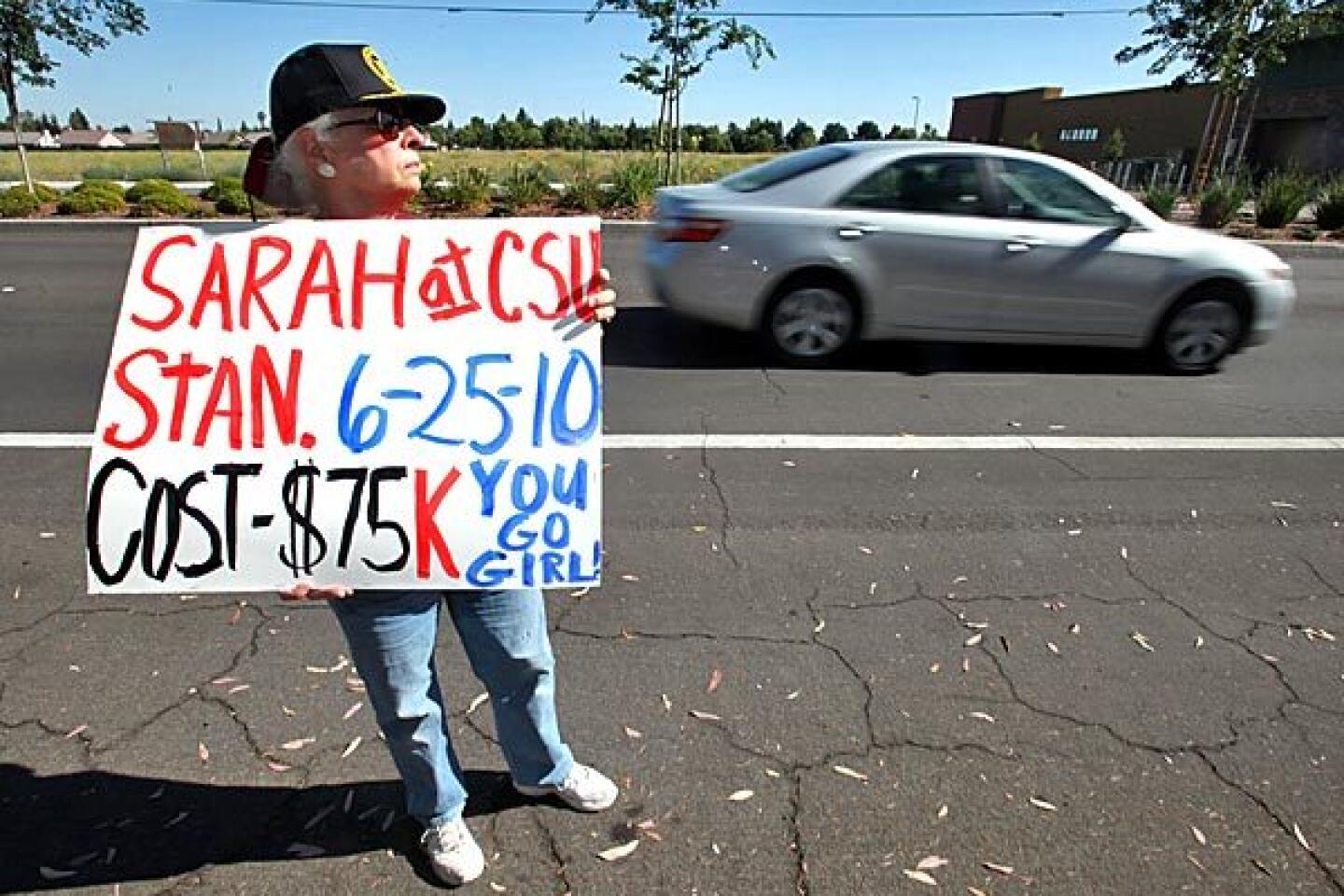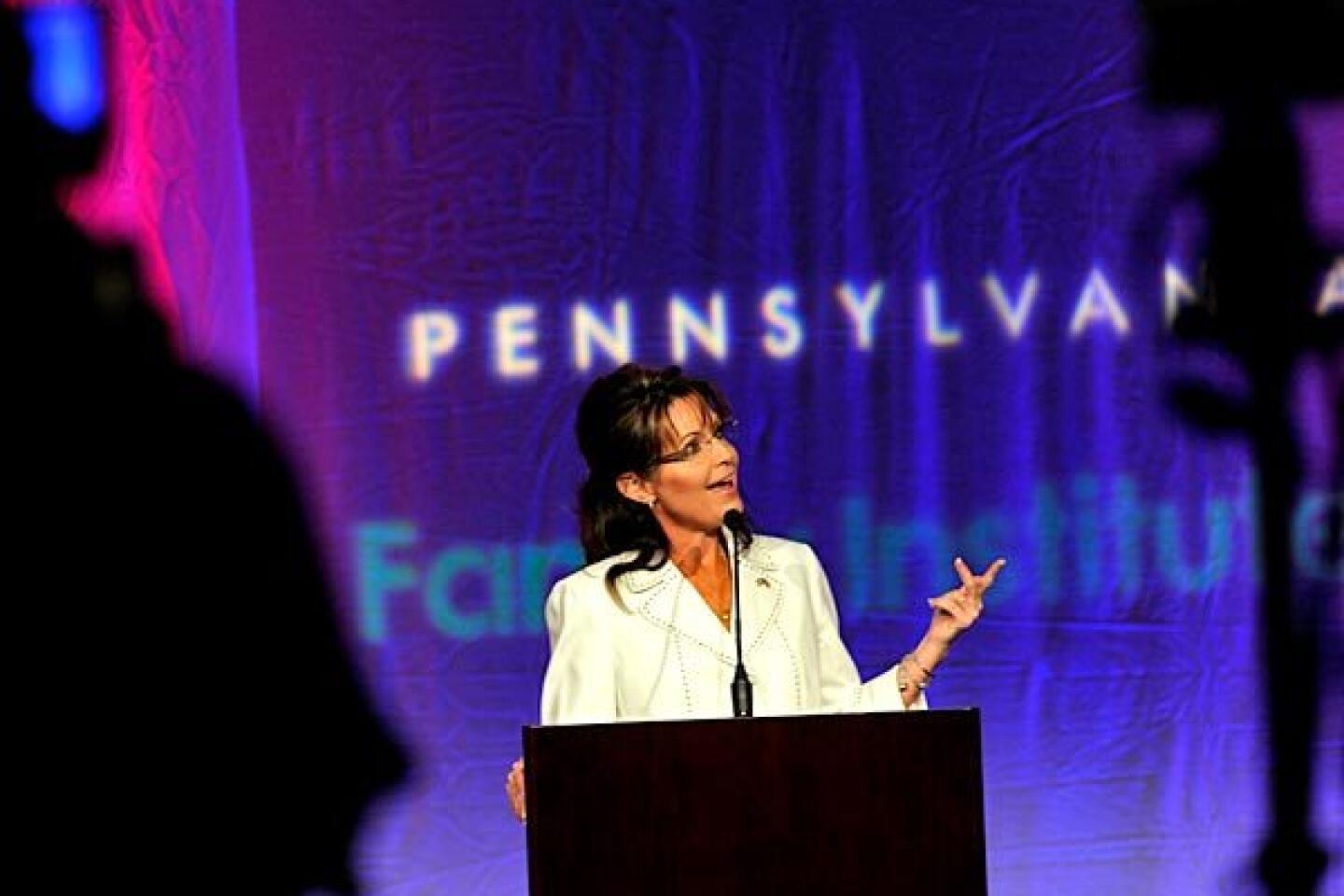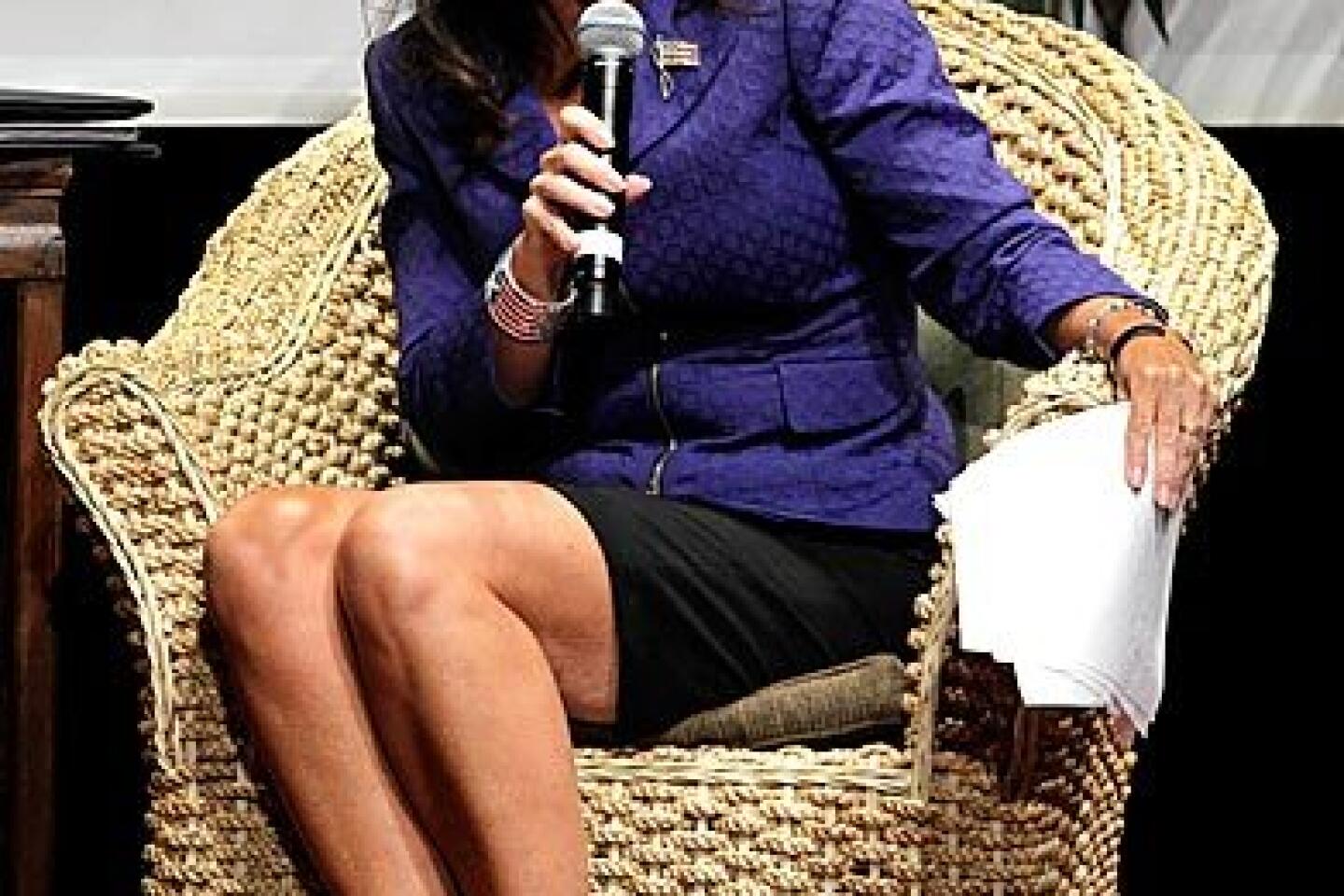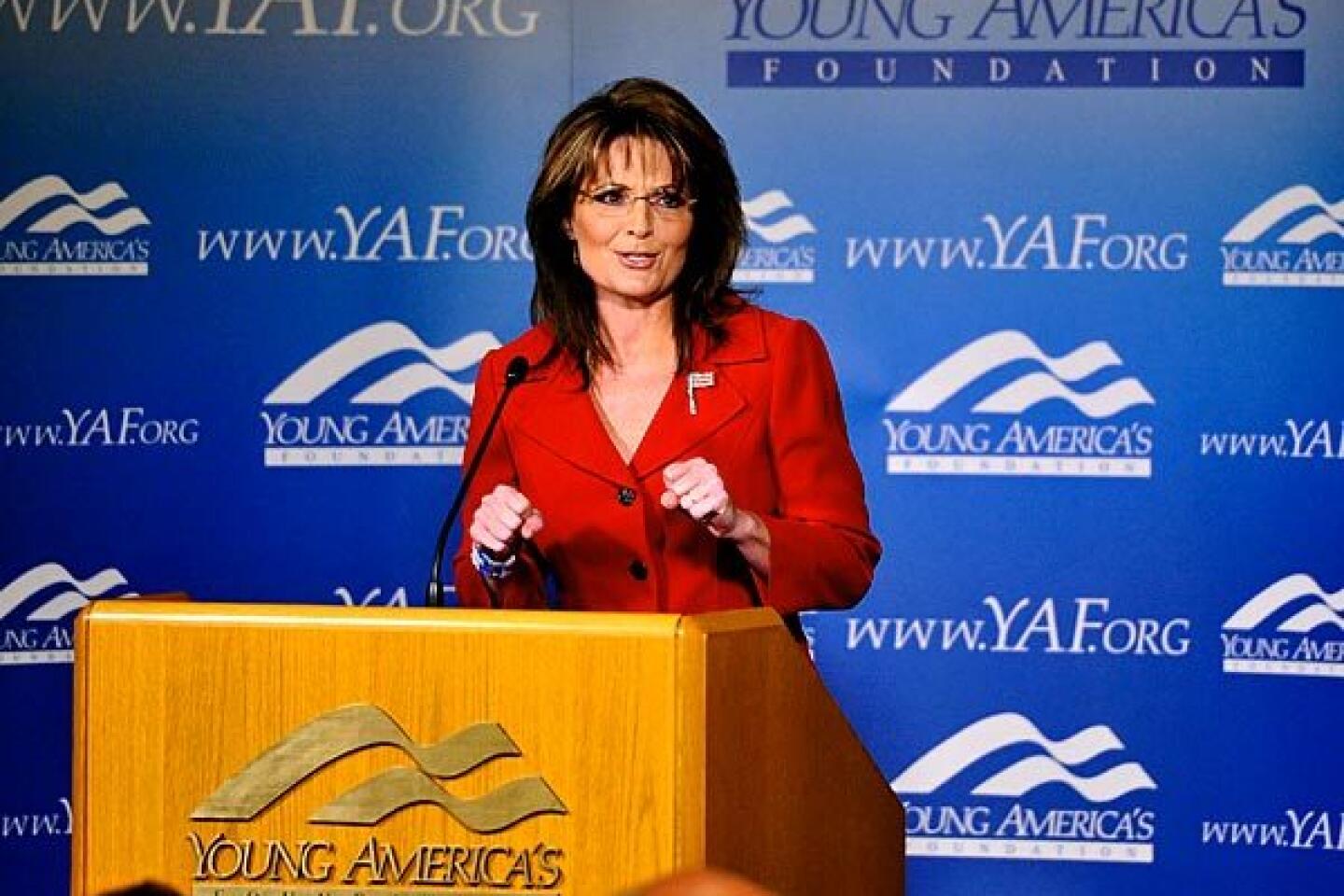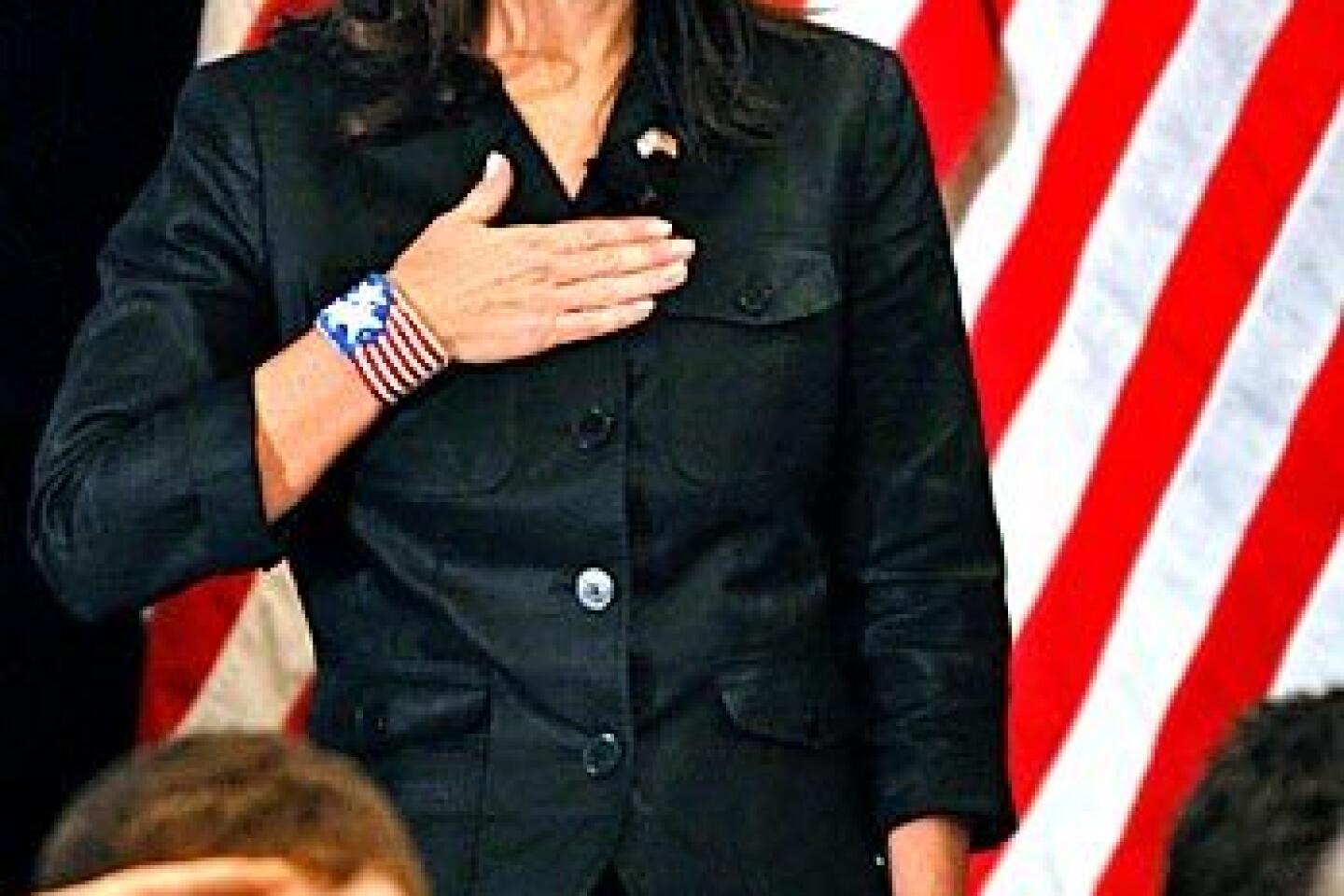Book Review: Sarah Palin via Joe McGinniss: cocaine, infidelity and anonymity
There’s a not-so-subtle agenda underpinning Joe McGinniss’ “The Rogue: Searching for the Real Sarah Palin,” although it’s never made explicit until late in the book. “The time has come to strike the tent,” McGinniss begins the closing chapter. “[N]o matter how much my book sales might benefit from a Palin presidential campaign in 2012, I sincerely hope that the whole extravaganza, which has been unblushingly underwritten by a mainstream media willing to gamble the nation’s future in exchange for the cheap thrill of watching a clown in high heels on a flying trapeze, is nearing the end of its run.”
If you’re a Palin supporter, this will only give you ammunition to dismiss “The Rogue” as one more piece of liberal propaganda, yet another “lamestream media” smear campaign. If you agree with McGinniss, you may wonder why it took so long to get to the point.
Either way, the statement offers an unintended glimpse of the difficulties inherent in the project — both because it risks undermining what appear to be damning revelations about Palin and her husband Todd, and also because of what it suggests about the futility of trying to outguess a public figure as mercurial, or unfocused, as the former Alaska governor. When McGinniss wrote those lines earlier this year, Palin was still considered a likely candidate for the 2012 Republican presidential nomination; now, her moment may have passed. This is the problem with instant history, that events have a way of outstripping us, that it’s hard to tell a story before it ends.
Photos: Sarah Palin on the speech circuit
For McGinniss, the contrivance of closure, or at least of a constrained timeline, is woven into the fiber of the text. It’s not that he doesn’t know the material: In the 1970s, he lived in Alaska to write the book “Going to Extremes” and he covered Palin for the Daily Beast and Portfolio. Nonetheless, there’s a sketchy quality to “The Rogue,” especially the present-tense sections, which detail his experiences during the summer of 2010, when he moved in next door to the Palins in Wasilla, Alaska; much of his research was completed in his 3-1/2 months there.
The controversy over this decision — McGinniss was excoriated by the far right, called a Peeping Tom and a stalker, and threatened with violence — provides a frame to his narrative, which slips back and forth between the events of the summer and an impressionistic portrait of Palin’s life and career. But it also makes the story seem conditional, too much about McGinniss, which pulls focus from the disclosures that are, or should be, at the heart of the book.
As for these disclosures, McGinniss claims that Palin snorted cocaine off an overturned 55-gallon drum during a snowmobile excursion, slept with college (and later NBA) basketball star Glen Rice when she was an unmarried 23-year-old sports reporter (McGinniss talked to Rice for the book and he confirmed the relationship) and had an affair with Brad Hanson, Todd Palin’s business partner, apparently as payback for her husband’s infidelities. (Both Palin and Hanson, he notes, have denied the affair.)
Such indiscretions have already seized the public conversation, but what’s striking is how tame they are. McGinniss could be describing anyone of Palin’s generation — or anyone as unhappily married as he indicates the Palins are.
“By November 2001,” he writes, “… Sarah’s domestic life was in tatters.… Time with friends — not that there were many friends — would degenerate into marital squabbles, raised voices, and frequent threats of divorce. A recurring cause of conflict was Sarah’s inability or refusal to act as mother to her children.”
This is a far more troubling allegation, suggesting that Palin’s “hockey mom” image is the most stage-managed sort of lie. “Friends recall,” McGinniss observes, “that when Todd was working on the North Slope, the children literally would have a hard time finding enough to eat. ‘Those kids had to fend for themselves,’ one says. ‘I’d walk into that kitchen and Bristol and Willow would be sitting there with a burnt pot of Kraft mac and cheese on the stove … and Sarah would be up in her bedroom with the door closed saying she didn’t want to be disturbed.’”
As worrisome as that is, it also suggests a significant flaw in “The Rogue,” which is McGinniss’ reliance on unnamed sources. Throughout the book, only a handful of people — including Gary Wheeler, Palin’s onetime head of security, and Walt Monegan, whom she fired as Alaska’s director of public safety — are willing to go on the record; everyone else is frightened of reprisals.
Certainly, their fear seems valid: When Catherine Taylor, the Palins’ next-door neighbor, squawks about their decision to cut a road across her property, “Todd told her, very plainly, that Sarah was mayor and they could do whatever they wanted, and it would be a mistake for her to try to stop them,” while a man named Dewey Taylor (no relationship to Catherine Taylor) has his truck window shot out after delivering chairs to McGinniss’ house.
“Name one thing she’s done — just one — that reflects a truly caring Christian heart,” says Zane Henning, a religious conservative who filed ethics complaints against Palin when she was governor. “She’s never volunteered for charity. Habitat for Humanity? The United Way? Even Christian-sponsored charities.… And her so-called family values? After the way she’s neglected her own kids?”
What McGinniss is getting at is hypocrisy, even outright manipulation — a strategy of deception over Palin and what she represents. This is important, especially when it comes to her religious agenda, which, he argues, is defined by Third Wave/New Apostolic ideology and the desire to tear down the walls between church and state.
And yet, in his conversations with Henning and others, there is an edge of personal animus, of gossip more than policy. Such an issue comes up repeatedly in “The Rogue” — most uncomfortably in the chapter on Palin’s young son, Trig, whom, it has been conjectured, might not really be her child — and it gets back to the problem of instant history and the agenda at the center of the book.
I have no doubt that McGinniss’ view of Palin is accurate: that she is narcissistic, undisciplined and unqualified for public life. Still, I want more than innuendo to make the point.
“Sarah Palin practices politics as lap dance,” he writes, “and we’re the suckers who pay the price.” True enough, perhaps, but like too much of “The Rogue,” this is its own sort of come-on: titillating her detractors while allowing her supporters to disregard everything McGinniss has to say.
More to Read
Sign up for our Book Club newsletter
Get the latest news, events and more from the Los Angeles Times Book Club, and help us get L.A. reading and talking.
You may occasionally receive promotional content from the Los Angeles Times.


